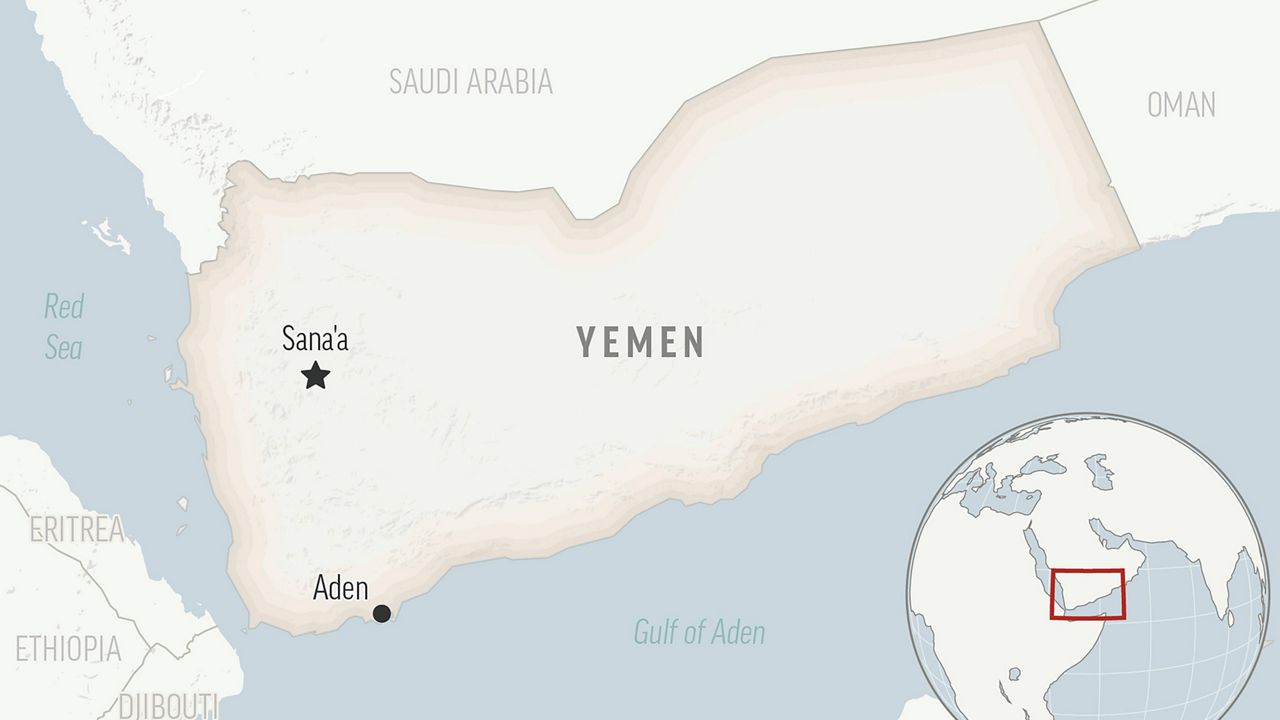Border Patrol encounters with migrants on the United States’ southern border were down 50% in the two days after the Biden administration adopted new policies to deter migrants from entering the country, Homeland Security Secretary Alejandro Mayorkas claimed Sunday.
“We have seen I think approximately 6,300 on Friday and about 4,200 yesterday by the United States Border Patrol and we saw over 10,000 before the end of Title 42 earlier last week,” Mayorkas said on CNN’s “State of the Union” on Sunday. “We have communicated very clearly a vitally important message to the individuals who are thinking of arriving at our southern border: There is a lawful, safe and orderly way to arrive in the United States that is through the pathways that President Biden has expanded in an unprecedented way.”
“And then there's a consequence if one does not use those lawful pathways, and that consequence is removal from the United States, a deportation and encountering a five year ban on reentry and possible criminal prosecution,” Mayorkas added.
Title 42 was the rule implemented during the Trump administration that allowed the United States to deny migrants the right to claim asylum under the auspices of health concerns during the first years of the COVID-19 pandemic. It expired Thursday night and was replaced with the previous, decades-old Title 8 policy that imposes stiffer penalties for unauthorized border crossings, in addition to new legal pathways to enter the country.
“It is a matter of not only border security, but it is a matter of humanitarian responsibility,” Mayorkas said on MSNBC’s “The Sunday Show” in a separate interview. “We have got to save those vulnerable individuals from the ruthless clutches of the smuggling organizations that exploit them for profit.”
Mayorkas and other administration officials have zeroed in on smugglers who help migrants get to and cross the border, blaming them for spreading misinformation about U.S. immigration policies and helping people enter the country illegally.
Deporting more migrants and introducing harsher consequences for those who do enter illegally — removal within days, a five-year ban from reentry, and the loss of eligibility to claim asylum in the U.S. — is part of the country’s “humanitarian responsibility to cut those smugglers out,” Mayorkas said, noting that over 10,000 smugglers have been arrested since President Joe Biden took office.
“The asylum system has been and continues to be a jewel of the United States. We take great great pride as a country in this world to provide humanitarian relief for those who qualify,” Mayorkas said on CNN. “But the landscape of migrations changed dramatically over the past 10-plus years. No longer are individuals arriving at our border of their own volition. They are arriving in the hands of smugglers that wreak such tragedy, such trauma upon their lives.”
Under Title 42, people were turned away at the border over 2.8 million times since March 2020, according to federal data, but there was no penalty for attempting reentry. Still the policy lead to migrants being stuck in Mexico in often squalid and occasionally dangerous conditions as they awaited determinations on their asylum claims.
The Biden administration is striving to move away from that process by discouraging crossing attempts at all by pledging more severe penalties and to double or triple weekly flights bringing migrants back to their country of origin.
Minutes after they went into effect, the ACLU and a coalition of immigrant and human rights organizations sued the Biden administration to block the new policies.
“The Biden administration’s new ban places vulnerable asylum seekers in grave danger and violates U.S. asylum laws. We’ve been down this road before with Trump,” said Katrina Eiland, managing attorney with the ACLU Immigrants’ Rights Project, in a release. “The asylum bans were cruel and illegal then, and nothing has changed now.”
“I disagree with every aspect of that statement,” Mayorkas said on ABC News’ “This Week” on Sunday, pushing back on the Trump comparisons. Like the Trump-era policies, the new rules try to keep migrants in other countries until their asylum applications are accepted.
Beyond the new penalties, the Biden administration is expanding the opportunities for legal entry: a new app that can be used to make appointments at a port of entry, a new family reunification process for migrants from certain countries, and a pledge to double the number of refugees the U.S. will accept from the Western Hemisphere each month. The administration continues to say Biden’s expansion of legal pathways was the most significant in decades, with Mayorkas saying it was the most significant ever on Sunday.
The U.S. will also open “regional processing centers” across the hemisphere to help process asylum claims and other immigration applications in a bid to stem the flow of migrants before they even reach the border.
But, Mayorkas said the border policies won’t be enough to truly end the flow of migrants, which has grown dramatically in recent years. Instead, investment in combating the root causes of migration and comprehensive immigration reform from Congress, long-sought by members of both parties but so far an unsuccessful prospect.
“Fundamentally, we need Congress to fix what everyone agrees is a broken immigration system,” Mayorkas said on MSNBC. “What we are asking for is to fix, not to dismantle, the system.”
Dismantling the system is how Mayorkas described the goals of the bill passed by House Republicans on Thursday that would increase border enforcement, build more walls on the border, and narrow the definition of asylum for those seeking refuge in the United States. The bill, which Biden has pledged to veto, has little chance of becoming law.
“This was not intended to fix immigration,” Rep. Mark Green, R-Tenn., said on CNN’s “State of the Union” on Sunday. “We need to secure our border, and then we can deal with the immigration piece. You can't create more incentive to come here without a secure border.”
Biden and House Democrats’ immigration plan would create a roadmap for the United States’ 11 million undocumented immigrants to achieve citizenship, overhaul the current immigration system, raise visa caps, expand immigration courts, and pour resources into border security.
Mayorkas also pointed to the more than $3 billion in investment the administration has made in countries where migrants originate from, in an attempt to address the root causes of migration, including “systemic poverty, violence, corruption, persecution, authoritarian regimes.”
But he didn’t mention one factor that has led experts to believe millions of people will be forced to migrate from their homes in the coming decades: climate change.
Over 3.3 billion people live in countries with “high human vulnerability to climate change,” according to a 2022 United Nations report, which projected as many as 143 million people will be displaced by 2050 in just three regions: South Asia, sub-Saharan Africa, and South America.









